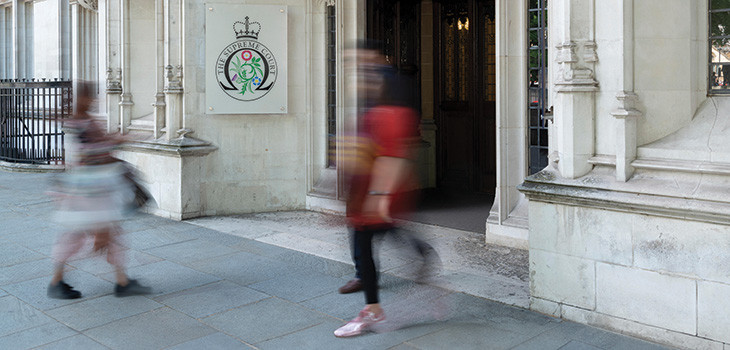
- A rundown of the justices’ most significant cases in 2023, with analysis of their appearances and judgments.
In 2023 the Supreme Court issued decisions in 52 cases. This was a 49% increase on the unusually low figure of 35 decisions in 2022 and it aligns exactly with the average annual number of decisions over the past five years.
The courts appealed against were the Court of Appeal of England and Wales (40 cases, or 77%), the Inner House of the Court of Session (four cases), the Court of Appeal of Northern Ireland (four cases), the Divisional Court of England and Wales (two cases) and the High Court of England and Wales in two leapfrog appeals: JTI Polska Sp. Z o.o. v Jakubowski [2023] UKSC 19, on whether excise duty is payable on goods stolen during their international carriage; and Unger (in substitution for Hasan) v Ul-Hasan (deceased) [2023] UKSC 22, on financial relief after one









